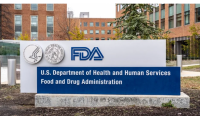-
Allogeneic CAR-T heats up again
- Source: drugdu
- 30
- December 3, 2024
-
CAR-T, a special medicine for tumors, is out of the medical insurance again
- Source: drugdu
- 33
- December 2, 2024
-
CAR-T is not selling well? Gilead lays off employees again
- Source: drugdu
- 46
- November 23, 2024
-
Million-RMB-worth CAR-T Drugs Miss Out on Health Insurance Negotiations for the Fourth Time
- Source: drugdu
- 76
- November 1, 2024
-
Can Increased Investment in Cell Therapy Drive CAR-T Product Growth?
- Source: drugdu
- 97
- September 21, 2024
-
How to select T cell targeted antibodies in the strategy of antibody conjugated LNP (Ab LNP) for mRNA CAR-T therapy
- Source: drugdu
- 92
- September 4, 2024
-
Chinese CAR-T Pioneer Legend Biotech in Profile
- Source: drugdu
- 75
- August 9, 2024
-
New study suggests CAR-T therapy monitoring time could be slashed
- Source: drugdu
- 89
- July 26, 2024
-
Comprehensive cost and utilization of commercial CAR-T therapy in pediatric B-ALL patients
- Source: drugdu
- 93
- May 21, 2024
-
Hemogenyx gets reprieve as FDA lifts clinical hold on AML CAR-T therapy
- Source: https://www.pharmaceutical-technology.com/news/hemogenyx-gets-reprieve-as-fda-lifts-clinical-hold-on-aml-car-t-therapy/?cf-view
- 157
- February 15, 2024
your submission has already been received.
OK
Subscribe
Please enter a valid Email address!
Submit
The most relevant industry news & insight will be sent to you every two weeks.













